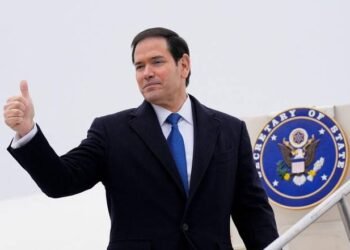Kuwait’s Emir Sheikh Meshal issued a decree forming a supreme committee to investigate citizenship disputes, a key political issue that has stirred up debate over the past several months.
“The decree appointed the First Deputy Prime Minister and Minister of Interior as the committee’s head and Deputy Prime Minister and Minister of State for Cabinet Affairs, Foreign Minister and Secretary General of the Council of Ministers as members,” said the Emiri decree issued late on Monday.
Sheikh Meshal this month warned that authorities would intensify a campaign to confront cases of citizenship fraud, about two months after the Ministry of Interior announced its intention to tackle “forgers and dual Kuwaiti nationals”.
“We will reconsider the social security laws first and those whoever entered the country unintentionally and unjustly disguised themselves as a national or whoever assumes a lineage other than their own, those who holds dual nationality, those who are tempted to take the path of fraud to obtain it, and those who benefited from the country’s bounties without right and those who have deprived the people of Kuwait who deserve it,” Sheikh Meshal said during a speech on May 10, in which he also dissolved parliament and temporarily suspended parts of the constitution.

Since March, Kuwait has revoked the citizenship of more than 50 people after finding that they obtained it through fraudulent means or false statements.
The government had also established a hotline for people to report citizenship fraud.
Kuwaiti citizenship is passed down from a Kuwaiti father to his children automatically. But Kuwait allows for naturalisation by a high committee comprised of Kuwaiti nationals designated by the Minister of the Interior who periodically evaluates applicants seeking citizenship.
This week, Kuwait’s constitutional court also rejected a petition challenging the rights of children of naturalised Kuwaitis to run in parliamentary elections. The petition had argued that a law issued in 1994 allowing children of naturalised citizens to contest elections was in breach of the constitution and should be overturned.
Citizenship rights have been at the centre of a long-standing debate in Kuwait, including the issue of about 120,000 stateless people in the country known as “bidoon”. Despite efforts to address the issue, including legislative reforms, challenges have persisted over several years due to continued political tension between the elected parliament and appointed government.








 United Arab Emirates Dirham Exchange Rate
United Arab Emirates Dirham Exchange Rate
